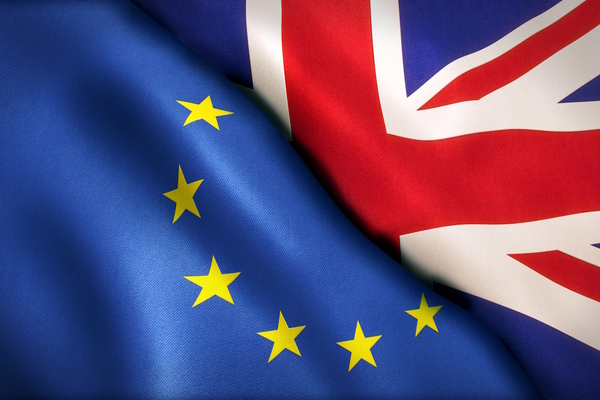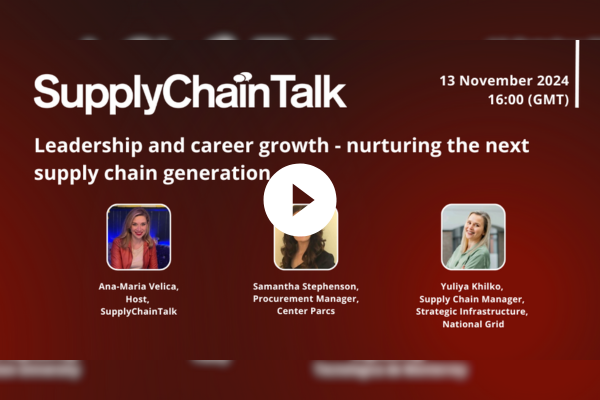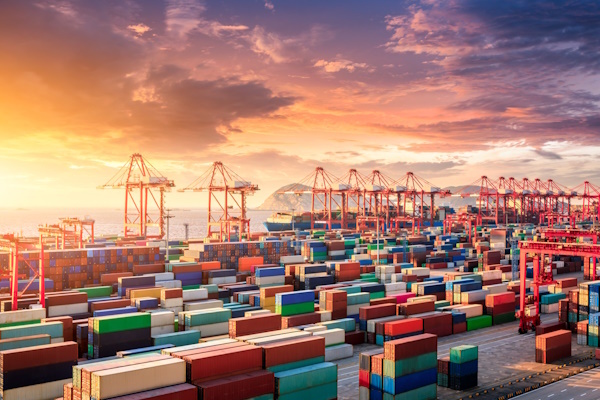SupplyChainTalk: Delivering on the “social” in your ESG strategy
On 9 October 2024, SupplyChainTalk host Ana-Maria Velica was joined by Rachel Lock, Head of Supply Chain Management - ESG + Sustainability, UK, DNV; Solène Le Digabel, Commercial Lead – Projects & Partnering, Department for Business and Trade; and Ann Daly, Global Media and Brand Design Category Manager, General Mills.
Views on news
Signs that modern slavery victims were being forced to work at a McDonald’s branch and a company supplying bread products to major supermarkets were missed for years, the BBC has found. Identifying and removing the risk, however, aren’t enough. Businesses must also go beyond a due diligence exercise and act on and respond to the risk they have identified
Social responsibility
Training employees across different levels can be key to empowering employees to report if something doesn’t look right. It’d be also key to find ways of improving the visibility of minority led and run companies, so they can stand on a more equal footing with large companies. Procurement is in a good position to put pressure on suppliers of goods and services to take due diligence more seriously. In a positive trend, many companies now run supplier diversity programmes.
The social aspect of ESG should also be represented on supplier scorecards alongside core criteria such as price, quality and delivery. The Procurement Act, which will reform the existing Procurement Rules, may increase the percentage of social value in a procurement contract from the current 10%. Themes of the act will include suppliers’ collaboration with communities, physical and mental wellbeing programmes and commitment to ways in which a supplier detects signs of modern-day slavery.
However, social responsibility shouldn’t be about a company imposing its values on suppliers or other cultures. A company’s code of conduct is often outsourced, and there should be more discussions about it, as well as adaptations where necessary. There are international standards, though, such as the UN’s ESG goals and ILO around labour and fair employment which should be respected globally.
Naturally, SMEs have less potential to launch ESG schemes and expectations must be tailored to their capacity if a business wants to deal with them. Audits ranging from site visits to using an official auditor are very effective – especially if they are unannounced. If suppliers realise that scoring high on social aspects of their operation gives them competitive advantage, they will see the value of ESG frameworks more. KPIs can be also established and leveraged for social performance.
The panel’s advice
- Data remains the most powerful tool to monitor a supplier’s progress on its ESG journey.
- Employee welfare due diligence doesn’t need to reinvent the wheel – there are some good practices that can be integrated from other sectors.
- The relationship and communication with suppliers should be a two-way traffic and the business should make feel suppliers to be a valued part of its supply chain.
- When deciding to improve your company’s social performance, ask yourself why you need it and assess if it will in fact result in a positive impact.
- Don’t forget that investment in social performance pays off hugely if it helps avoid reputational damage.

Business Reporter Team
Most Viewed
Winston House, 3rd Floor, Units 306-309, 2-4 Dollis Park, London, N3 1HF
23-29 Hendon Lane, London, N3 1RT
020 8349 4363
© 2024, Lyonsdown Limited. Business Reporter® is a registered trademark of Lyonsdown Ltd. VAT registration number: 830519543





